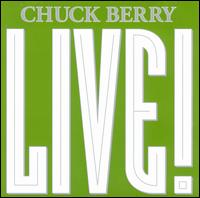
Charles Edward Anderson Berry was an American singer and songwriter, and one of the pioneers of rock and roll music. Nicknamed the "Father of Rock and Roll", Berry refined and developed rhythm and blues into the major elements that made rock and roll distinctive with songs such as "Maybellene" (1955), "Roll Over Beethoven" (1956), "Rock and Roll Music" (1957) and "Johnny B. Goode" (1958). Writing lyrics that focused on teen life and consumerism, and developing a music style that included guitar solos and showmanship, Berry was a major influence on subsequent rock music.
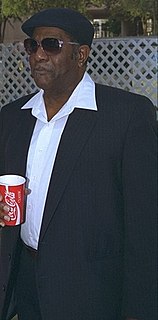
Johnnie Clyde Johnson was an American pianist who played jazz, blues and rock and roll. His work with Chuck Berry led to his induction into the Rock and Roll Hall of Fame. He was posthumously awarded the Congressional Gold Medal for breaking racial barriers in the military, as he was a Montford Point Marine - where the African-American unit endured racism and inspired social change while integrating the previously all-white Marine Corps during World War II.

"Johnny B. Goode" is a 1958 rock-and-roll song written and first recorded by Chuck Berry. The song was a major hit, peaking at number two on Billboard magazine's Hot R&B Sides chart and number eight on its Hot 100 chart.

"Rock and Roll Music" is a 1957 hit single written and recorded by rock and roll star Chuck Berry. The song has been widely covered and is recognized as one of Berry's most popular and enduring compositions. In the fall of 1957, his recording reached number 6 on Billboard magazine's R&B Singles chart and number 8 on its Hot 100 chart.

"Roll Over Beethoven" is a 1956 hit single written by Chuck Berry, originally released on Chess Records, with "Drifting Heart" as the B-side. The lyrics of the song mention rock and roll and the desire for rhythm and blues to replace classical music. The title of the song is an imperative directed at the composer Ludwig van Beethoven to roll over in his grave in reaction to the new genre of music that Berry was promoting. The song has been covered by many other artists, including the Beatles and the Electric Light Orchestra. Rolling Stone magazine ranked it number 97 on its list of the "500 Greatest Songs of All Time".
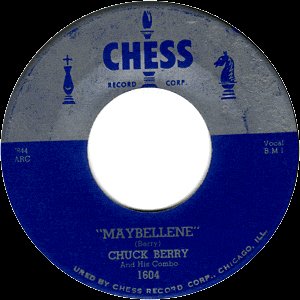
"Maybellene" was one of the first rock and roll songs. It was written and recorded in 1955 by Chuck Berry, adapted in part from the Western swing fiddle tune "Ida Red". Berry's song told the story of a hot rod race and a broken romance, the lyrics describing a man driving a V8 Ford and chasing his unfaithful girlfriend in her Cadillac Coupe DeVille. It was released in July 1955 as a single by Chess Records, of Chicago, Illinois. Berry's first single and his first hit, "Maybellene" is considered a pioneering rock and roll song. Rolling Stone magazine wrote of it, "Rock & roll guitar starts here." The record was an early instance of the complete rock and roll package: youthful subject matter; a small, guitar-driven combo; clear diction; and an atmosphere of unrelenting excitement.
The London Rock and Roll Show was a concert held at Wembley Stadium in Wembley Park, London, England, on 5 August 1972. It is often said to have been the first ever concert held at the stadium, but in fact the band Yes had performed in the Stadium on 13 July 1969.

Live On Stage is a Chuck Berry album released in 2000 by Magnum Records.

Hail! Hail! Rock 'n' Roll is an album by Chuck Berry and soundtrack to the film of the same name, which was released in 1987 under record label, MCA. The album was recorded live at The Fox Theatre, St Louis, Missouri and Berry Park, Wentzville, Missouri on October 6 and October 16, 1986. The event was held to celebrate Berry's 60th birthday and it included several special guests. The album does not include the Berry song "School Days," which includes the line the album's title is derived from.

Chuck Berry Live in Concert is a live album by Chuck Berry. It was released in 1978, nine years after it was recorded at the 1969 Rock and Roll Revival concert at Varsity Stadium in Toronto, Canada.
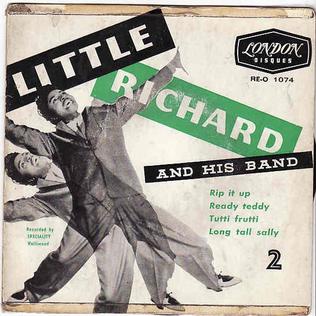
"Rip It Up" is a song written by Robert Blackwell and John Marascalco. It was first released by Little Richard in June 1956. Bill Haley and his Comets also released a recording of the song that year. The Little Richard version hit number one on the R&B Best Sellers chart for two weeks and peaked at number 17 on the pop chart. The Bill Haley and the Comets recording reached number 25 on the Billboard pop singles chart and number four in the UK. Bill Haley and the Comets also performed their version of the song in the 1956 film Don't Knock the Rock, in which Little Richard also appeared.

Chuck Berry's Golden Decade is a compilation of music by Chuck Berry, released in three volumes in 1967, 1973, and 1974. Covering the decade from 1955 to 1964, each volume consists of a two-LP set of 24 songs recorded by Berry. The first volume reached number 72 on Billboard's Pop Albums chart. The second volume peaked at number 110. The third volume, which included only two hit singles among its tracks, did not chart.

This is the discography of rock and roll musician Chuck Berry.
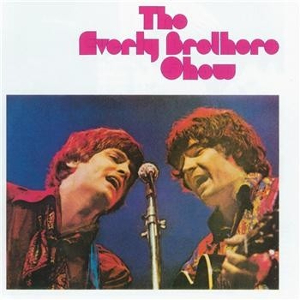
Everly Brothers Show is a live album by close harmony rock and roll duo the Everly Brothers, released in 1970.
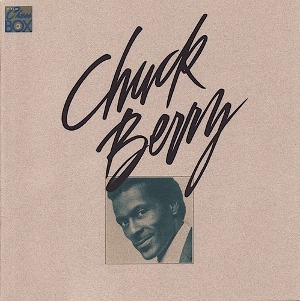
The Chess Box is a compact disc box set compilation by Chuck Berry. It is one in a series of box sets issued by MCA/Chess in the late 1980s. The Chuck Berry set is the most prominent of these, having won a Grammy Award for Best Historical Album in 1989. Berry's Chess Box was reissued on vinyl in 1990.
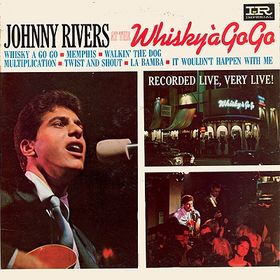
Johnny Rivers at the Whisky à Go Go is a live album and is the debut album from American rock and roll singer, songwriter and guitarist Johnny Rivers.
Instant Karma: All-Time Greatest Hits, a three-disc compilation album of music recorded by John Lennon, is a budget release targeted for sale at warehouse-type stores such as Sam's Club and Costco. The album was released in 2002 by Timeless/Traditions Alive Music under license from Capitol/EMI Special Projects. Disc one, subtitled The Hits, contained 11 songs that were previously released on singles. Disc two, subtitled Sings Classic Rock 'n' Roll, contained 10 cover songs recorded during Lennon's Rock 'n' Roll sessions as well as "Blue Suede Shoes" and "Dizzy Miss Lizzy," which were recorded live in Toronto in 1969. Disc three, subtitled The Classics Live, contained 12 songs recorded live in New York City either in August 1972 with Elephant's Memory at Madison Square Garden or, in the case of "Well ," with Frank Zappa and The Mothers of Invention at the Fillmore East in June 1971. All 35 songs on the album had been previously released.

The Chuck Berry House is the former home of American rock and roll musician Chuck Berry in St. Louis, Missouri located at 3137 Whittier Street. The house was Berry's home when he wrote and first performed the majority of songs with which he is identified, including "Maybellene" (1955), "Roll Over Beethoven" (1956), "Too Much Monkey Business" (1956), "Rock and Roll Music" (1957), "School Day" (1957), "Sweet Little Sixteen" (1958), and "Johnny B. Goode" (1958).
S.I.R. John Winston Ono Lennon is a bootleg album of rehearsals before a concert of British musician John Lennon and his wife Yoko Ono, recorded in studio in late August 1972.

"Little Queenie" is a song written and recorded by Chuck Berry. It was released in 1959 as a double A-side single with "Almost Grown" and included on Chuck Berry Is on Top (1959), Berry's first compilation album. He performed the song in the movies Go, Johnny Go! (1959) and Hail! Hail! Rock 'n' Roll (1987). It has been covered by many artists, including the Beatles, the Rolling Stones and REO Speedwagon. One year earlier, Berry had released "Run Rudolph Run", a Christmas song with the same melody.
